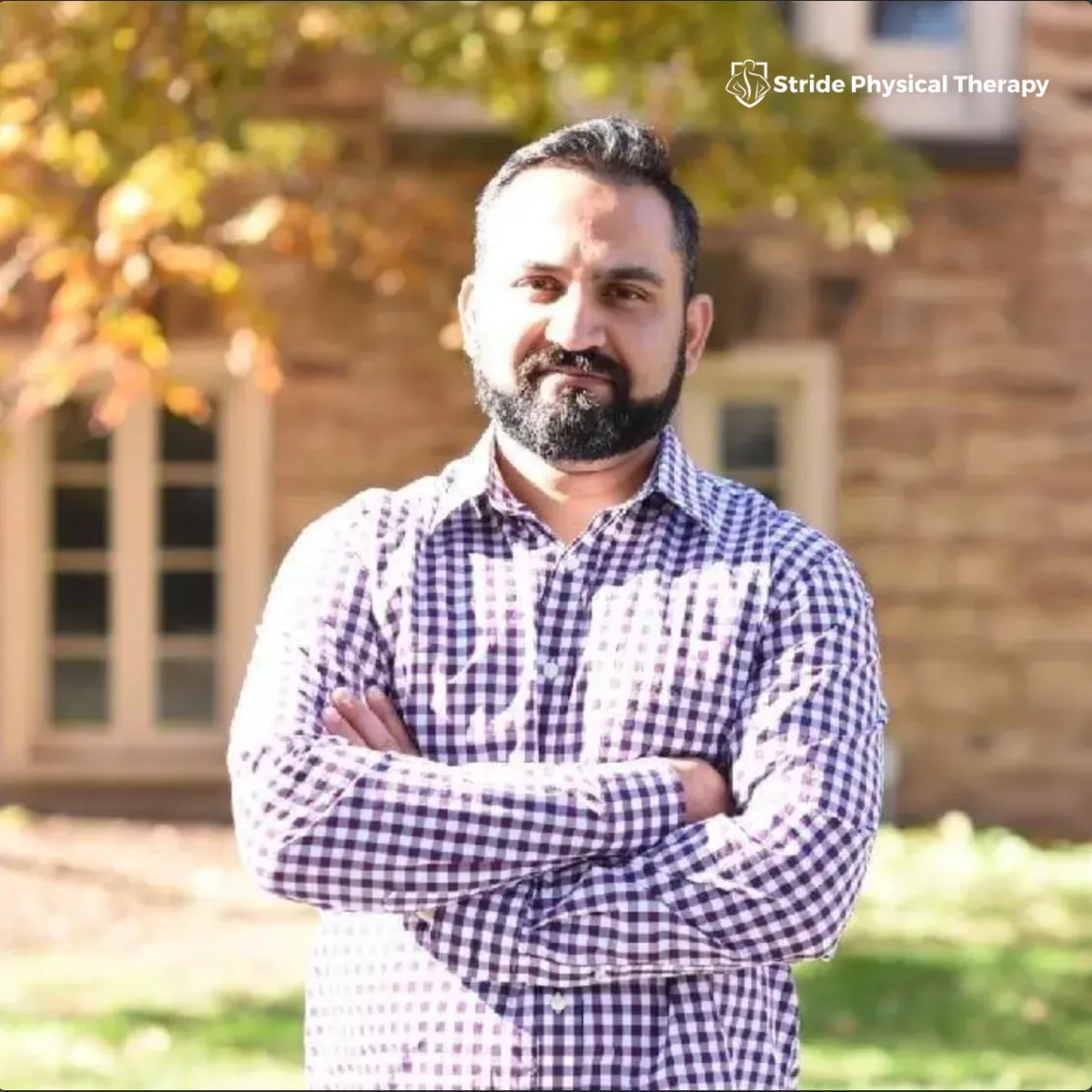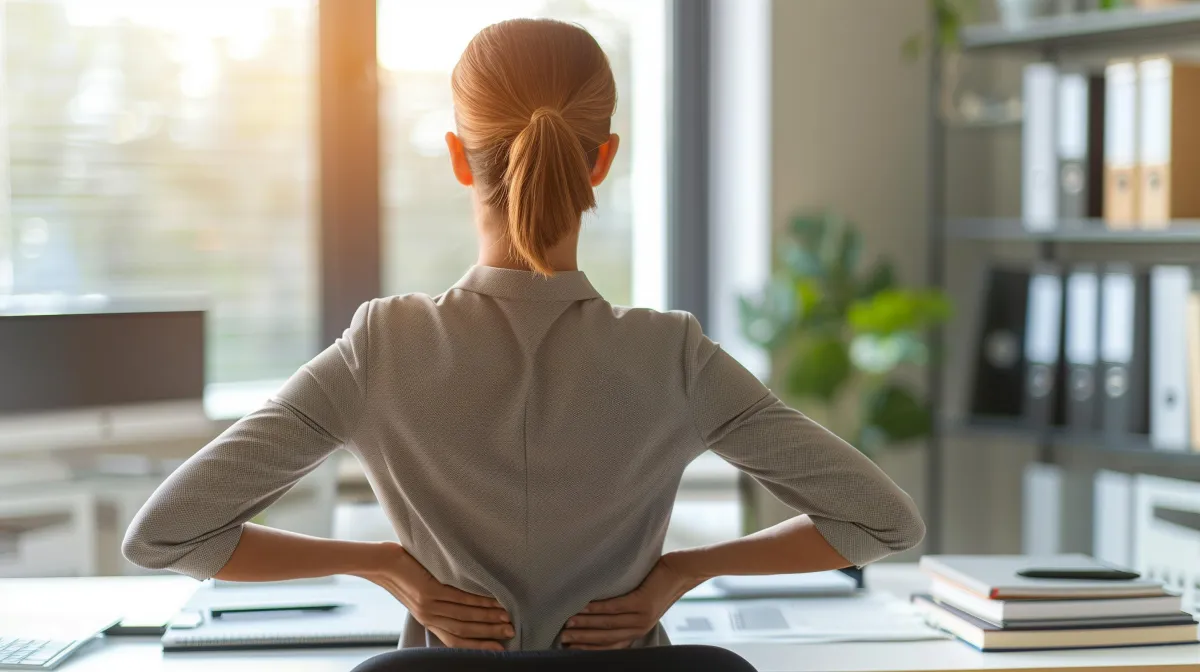Get Back on Your Feet with Foot and Ankle Pain Relief
Your feet work hard every day, and pain in your feet or ankles can seriously affect your daily routines. Simple activities like climbing stairs, walking to work, or driving may become painful tasks. Many things can cause foot and ankle pain, but at Stride Physical Therapy, we're here to help you recover. Physical therapy is effective for healing injuries and easing all types of pain. Book an appointment with our skilled physical therapists in Freehold, NJ, and find out how we can help you feel better!
Why am I experiencing foot and ankle pain?
Your feet and ankles are intricate systems that need to coordinate smoothly to work best. The ankle has three bones that need to move well together, plus connective tissues that keep the joint intact, as the Arthritis Foundation explains.
Your foot is a complex system with about 24 bones, 30 joints, and more than 100 muscles, tendons, and ligaments. Pain in the feet and ankles is very common due to this complexity. A foot or ankle injury can be so painful that you might not bear weight on it, forcing you to hop on the other foot or stay seated and immobile. Even slight pain can limit your daily activities and inconvenience those around you.

Quick Links
FAQs
What condition is causing my foot and ankle pain?
Foot and ankle discomfort might appear out of nowhere from a sudden injury or gradually due to a persistent problem. The Mayo Clinic identifies multiple usual sources of such pain, such as:
Strains and sprains
A strain happens when a muscle or its tendon is overstretched. A sprain happens when a ligament is overstretched or ripped.
Arthritis
Arthritis, a widespread joint inflammation, triggers joint pain. The most often seen forms—osteoarthritis and rheumatoid arthritis—particularly affect the foot and ankle.
Tendinitis
Tendinitis occurs from excessive overuse of the tendons, causing them to become inflamed for a long time.
Bursitis
Bursitis occurs when the Tendinitis results from overworking the tendons too much, leading to prolonged inflammation. rub against the “bursae” or anti-friction sacs, causing them to become irritated and uncomfortable.
Fractures
Broken bones happen when they are hit too hard and either crack or completely snap. If you break a bone in your foot or ankle, you might need to rest for several weeks to heal properly.
Tarsal tunnel syndrome
Tarsal tunnel syndrome happens when the nerve that travels from your ankle to your foot gets compressed and irritated.
Fallen arches
Your foot has various tendons that help create your arch. When these tendons function correctly, they create a normal arch. If they don’t work together well, you may have a low or no arch—known as flat foot—which can lead to pain or discomfort over time.
Plantar fasciitis
Plantar fasciitis is when the tissue connecting your heel to your toes on the foot's underside gets inflamed. Reasons include too much standing, bad standing habits, or wearing shoes without good arch support.
Find foot and ankle pain relief today:
At Stride Physical Therapy in Freehold, NJ, we offer relief for all types of foot and ankle pain. Our expert therapists will carefully assess your condition and craft a tailored treatment plan to target your unique needs.
Your treatment plan combines hands-on therapy, targeted exercises, and stretches to enhance joint movement, balance, and strengthen foot and ankle muscles. We may use a balance and other specialized methods. At Stride Physical Therapy, we aim to relieve your pain swiftly and improve blood flow. We’ll assess and suggest lifestyle adjustments or orthotic shoes to avoid future issues.
Struggling with foot or ankle pain? Take control of your movement and comfort at our Freehold, NJ clinic. Stride Physical Therapy will get you moving pain-free again. Book your appointment now and step towards recovery!
MEET YOUR RECOVERY TEAM

Kanwal Bhardwaj
PT, M.Sc.PT, CIMT, CMNT
Meet Kanwal Bhardwaj, PT, M.Sc.PT, CIMT, CMNT, the driving force behind Stride Physical Therapy in Freehold, NJ. With over 20 years of dedicated experience in the field, Kanwal brings a wealth of expertise and a passion for holistic healing to his practice. Kanwal's journey began with a Master of Science in Orthopedic Physical Therapy from Quinnipiac University in 2004. Over the years, he honed his skills and gained invaluable insights during 18 years of service in outpatient physical therapy offices. In 2014, fueled by a desire to deepen his understanding of patient care, he pursued a manual therapy certification (CIMT). This transformative experience allowed him to adopt a whole-body perspective, focusing on treating the root cause rather than just the symptoms...
At Stride Physical Therapy, we're dedicated to transforming lives. With a focus on the root cause of your condition, we're here to help you regain mobility and embrace an active lifestyle. What sets us apart? Our genuine passion for what we do. Let's stride towards a brighter tomorrow together.
Elevate Your Health with Our All-Inclusive Wellness Services!
Take one step closer to a pain-free life with Stride Physical Therapy! Discover medication and surgery-free solutions with our sessions.
Health Blog

Is a Herniated Disc Causing Your Back Pain?
Struggling with Persistent Back Pain? It Could Be a Herniated Disc
If you're dealing with unusual back or neck pain, or even numbness in your limbs, it could be due to a herniated disc. These issues can cause a range of confusing symptoms, but you don’t have to face them alone!
Our physical therapists at Stride Physical Therapy are here to help you understand herniated discs, their symptoms, and how we can help relieve your pain through targeted treatment.
Understanding Herniated Discs
A herniated disc, also known as a "slipped" or "ruptured" disc, occurs when a spinal disc’s outer layer weakens and allows the inner fluid to push outward. Discs act as cushions between the vertebrae, absorbing shock to keep the spine stable. But over time, wear and tear or sudden injuries can cause these discs to bulge or tear, leading to a herniation. Common causes include aging, accidents, or even heavy lifting.
Recognizing the Symptoms of a Herniated Disc
Not all herniated discs cause pain, but if they press on nearby nerves, you might experience:
Pain that increases with movement, like standing up or sitting down
Tingling or numbness in the arms or legs
Discomfort in the lower back, especially after bending or twisting
Neck pain (if the affected disc is in the cervical area)
Symptoms following an accident or physical stress, like lifting a heavy object
If you find that heat, cold, or massage brings relief, it could be a strain rather than a disc issue. For accurate diagnosis, imaging such as an X-ray is often the best approach, as it can reveal whether a disc is pressing on a nerve.
Treatment Options
Physical therapy offers effective relief and can help you regain strength and mobility without invasive measures. Our therapists will begin with a full assessment, pinpointing the exact cause of your pain to create a personalized recovery plan. Your treatment may include:
Manual therapy to relieve muscle tension
Ice and heat therapies for pain management
Traction to gently relieve pressure on spinal discs
Advanced techniques like Class IV laser therapy or TENS for targeted relief
Education on posture and safe lifting to prevent future injuries
Our goal is to help you heal naturally, minimizing the need for medications or surgery. Physical therapy is a holistic approach designed to reduce pain, improve function, and support your body’s healing process.
Ready to Feel Better?
A herniated disc can be painful, but recovery is within reach. Many people find lasting relief through physical therapy, even avoiding surgery. We’re here to strengthen your back or neck, support your recovery, and help you avoid future injury.
Get in touch with Stride Physical Therapy today to learn how we can help relieve your back pain and get you back to doing the things you love.


